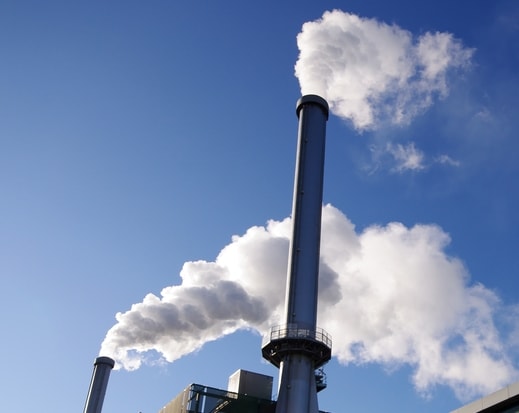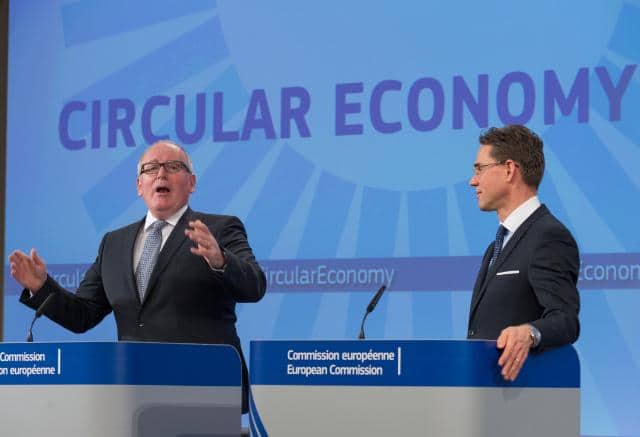The European Commission has adopted guidance today (26 January) over the role of waste-to-energy in a circular economy, and has warned against public investment contributing to incinerator ‘overcapacity’.
The Commission’s long anticipated communication on waste-to-energy, published this morning, is intended to ensure that the ‘recovery of energy from waste in the EU supports the objectives of the circular economy action plan’ and is guided by the waste hierarchy.

The European Commission has published its communication on the role waste-to-energy in the circular economy
It comes as the Commission also announced a joint ‘platform’ to be run alongside the European Investment Bank EIB, which will seek to channel investment into circular economy projects.
In the communication, the Commission has warned that feedstocks for energy from waste plants could be limited if circular economy proposals to increase the recycling of waste are successful.
It notes: “Public funding should also avoid creating overcapacity for non-recyclable waste treatment such as incinerators. In this respect it should be borne in mind that mixed waste as a feedstock for waste-to-energy processes is expected to fall as a result of separate collection obligations and more ambitious EU recycling targets.
“For these reasons, Member States are advised to gradually phase-out public support for the recovery of energy from mixed waste.”
“Public funding should also avoid creating overcapacity for non-recyclable waste treatment such as incinerators.”
Communication on Waste to Energy
EU Commission
The communication encompasses energy production processes including anaerobic digestion of biodegradable waste, incineration, gasification, and co-incineration of waste in power plants and in cement and lime production.
Efficiency
The Commission also claims that where waste-to-energy processes are opted for, there is a need to ensure that the ‘most efficient’ techniques are used – with facilities harnessing heating through district heat networks or heat pumps among those favoured.
It adds: “Waste-to-energy processes can play a role in the transition to a circular economy provided that the EU waste hierarchy is used as a guiding principle and that choices made do not prevent higher levels of prevention, reuse and recycling.”
The warning against funding for plants that could create overcapacity in the energy from waste market comes as the Commission has announced that it will establish a ‘Circular Economy Finance Support Platform’ alongside the EIB, which it is claimed will ‘raise awareness’ of circular economy investment opportunities.
Platform

(l-r) Frans Timmermans, EU Commission vice president, and Jyrki Katainen, Commissioner for Jobs and Growth, announced proposals for a ‘Circular Economy Finance Support Platform’ today
Commenting on the initiative, Commission vice-president Jyrki Katainen, responsible for jobs, growth, investment and competitiveness, said: “Our goal is to upscale investment, both public and private, in the circular economy. It very often means new business models and they may require new, innovative ways of financing.
“This new Platform is an excellent tool to raise awareness of the circular economy projects’ immense business potential and, consequently, draw in more funding for their financing. The Circular Economy is an important element to modernise the European economy and we are on track to deliver this sustainable change.”
Plastics
Also today, the European Commission has pledged to seek to improve the ‘economics, quality and uptake’ of plastics recycling and reuse through a new strategy for the material, for which it has outlined a ‘roadmap’ to guide the key principles of its approach.
“Our goal is to upscale investment, both public and private, in the circular economy. It very often means new business models and they may require new, innovative ways of financing.”
Jyrki Katainen
EU Commission Vice President
According to the Commission, action is needed to ‘de-couple’ plastics production from virgin fossil feedstock and to address the ‘economic incentives’ to use recycled plastic materials in products.
The strategy, which it is anticipated will be published in the fourth quarter of 2017, will look at issues around design of products, waste prevention and barriers to recycling. Consultations on a proposed strategy for plastics are expected to be launched in the coming weeks.
Related Links
EC Communication on Waste to Energy
The post EU Commission urges caution over EfW investment appeared first on letsrecycle.com.
Source: letsrecycle.com Plastic



